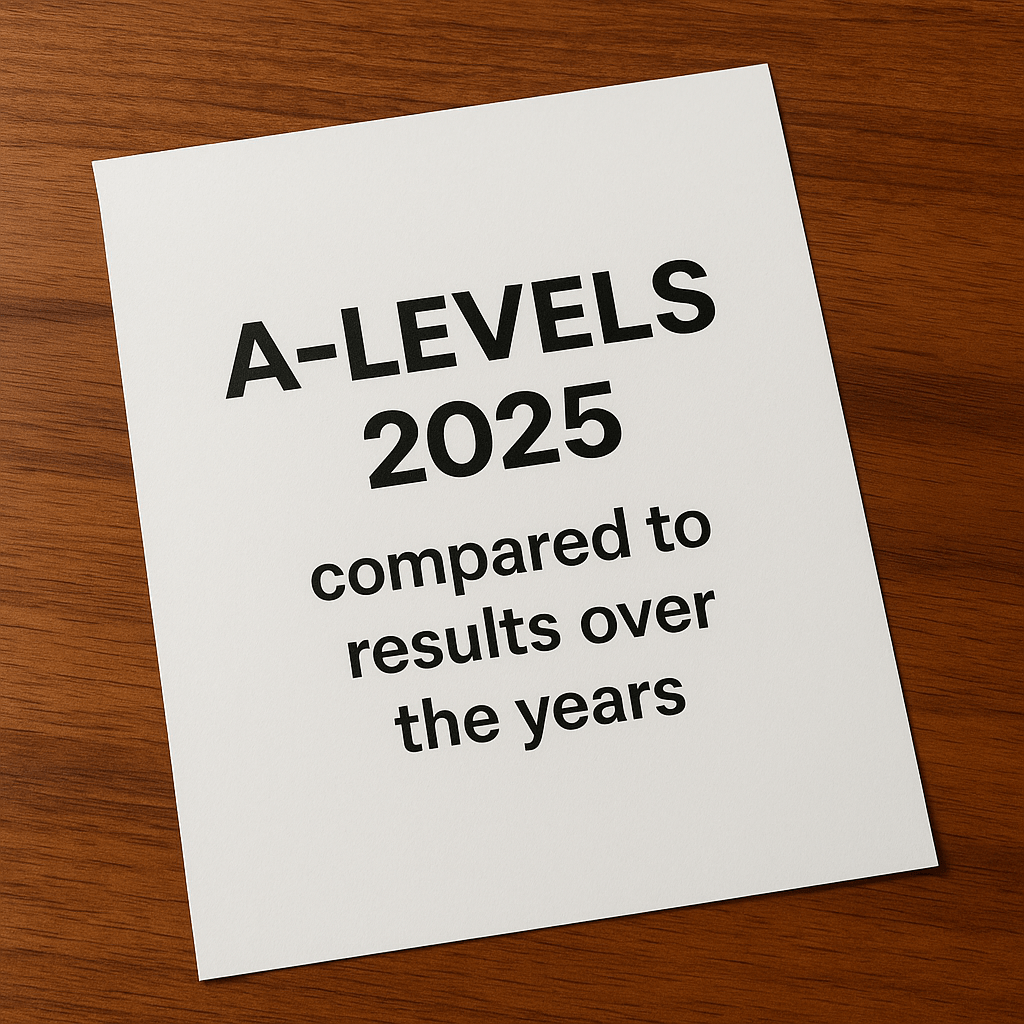The Cambridge A Level results dominate conversations every August. They influence university admissions, scholarship offers, and career decisions across the globe. Two days ago, the 2025 results arrived, sparking fresh debates. This is the right time to look back at two decades of grading history and see exactly where this year fits.
Cambridge A Level Results: Two Decades in Review
Cambridge A Levels have shaped academic journeys for generations. Over the last 20 years, the percentage of top grades has moved in noticeable patterns. Strong teaching, better resources, and improved study techniques helped many students climb the grade ladder.
From the early 2000s to the late 2010s, A* and A grades stayed close to the 25–27% mark. This steady performance created a sense of predictability—until COVID-19 disrupted the rhythm.
Grade Inflation and Its Origins
Education boards introduced new marking approaches over the years. When they replaced norm-referencing with criteria-based marking, more students met the top-grade requirements. This change led to more A and A* awards, though not always to higher actual performance.
For many, this shift felt like an opportunity. For others, it raised questions about the meaning of excellence.
The Pandemic Spike: Why Grades Soared
In 2020 and 2021, schools couldn’t hold normal exams. Teachers assessed students instead. Naturally, grades jumped. Around 45% of students received A*/A in those years—a massive leap from historical norms.
Teachers wanted to support their students during a tough period. Many feared that a harsh grading policy would crush morale and university prospects.
Post-COVID Correction: Back to Reality
By 2022, exam boards reintroduced stricter marking. The top-grade percentage fell. In 2023 and 2024, A*/A hovered around 27–28%, which mirrors pre-pandemic levels.
Students once again needed strong exam performance to secure top marks. This change restored confidence in the value of Cambridge A Levels.
Cambridge International A Levels: A Global Player
Cambridge International A Levels operate in over 129 countries. In 2025, participation hit a record high. Over 354,000 students from 3,300+ schools took part. Entries rose by 11% compared to 2024, proving the qualification’s growing appeal.
Highlights from the 2025 Cambridge A Level Results
The 2025 release brought several standout figures:
- 700,000+ subject entries
- 354,000+ students from 129 countries
- Mathematics, Chemistry, and Physics remained popular
- Global Perspectives entries rose by 17%, showing strong interest in real-world issues
These numbers show that more students see Cambridge A Levels as a key to global opportunities.
2025 vs Historical Trends Of Cambridge A Level
This year’s grade distribution sits close to last year’s levels. The balance between rewarding top performers and keeping standards high looks stable. The 2025 results neither inflated achievements nor tightened excessively.
Popular Subjects in 2025
| Subject | Trend Direction |
|---|---|
| Mathematics | Increasing |
| Chemistry | Steady |
| Physics | Increasing |
| English Language | Steady |
| Global Perspectives | Rising sharply |
| Psychology | Gaining traction |
| General Studies | Declining |
Students continue to gravitate toward STEM subjects and skills that fit an interconnected world.
Why Cambridge A Levels Keep Growing
Three main factors drive global demand:
- University Recognition – Leading universities respect Cambridge grades.
- Flexible Choices – Students can build a subject mix suited to their goals.
- Critical Thinking – Exams reward analysis, not rote memory.
Impact on Students, Parents, and Educators
- Students now face clearer expectations and fairer competition.
- Parents gain more confidence in the grading process.
- Educators adjust strategies to keep pace with rising subject interest.
- Universities receive results they can trust for admissions decisions.
Conclusion: Stability Returns In A Level Results
The story of Cambridge A Level results since 2005 is one of steady growth, a pandemic spike, and a return to balance. The 2025 figures confirm that Cambridge has restored consistency without lowering ambition.
This year’s results feel fair, competitive, and globally relevant—a strong sign for the future of international education.
FAQs about Cambridge A Level Results
On August 12, 2025, at 6:00 am BST.
Teacher-assessed grades replaced exams, leading to generous marking.
Yes. Exams and stricter marking returned.
Mathematics, Chemistry, Physics, and Global Perspectives.
Yes, they remain a gold standard for academic preparation.
Over 354,000 globally.

